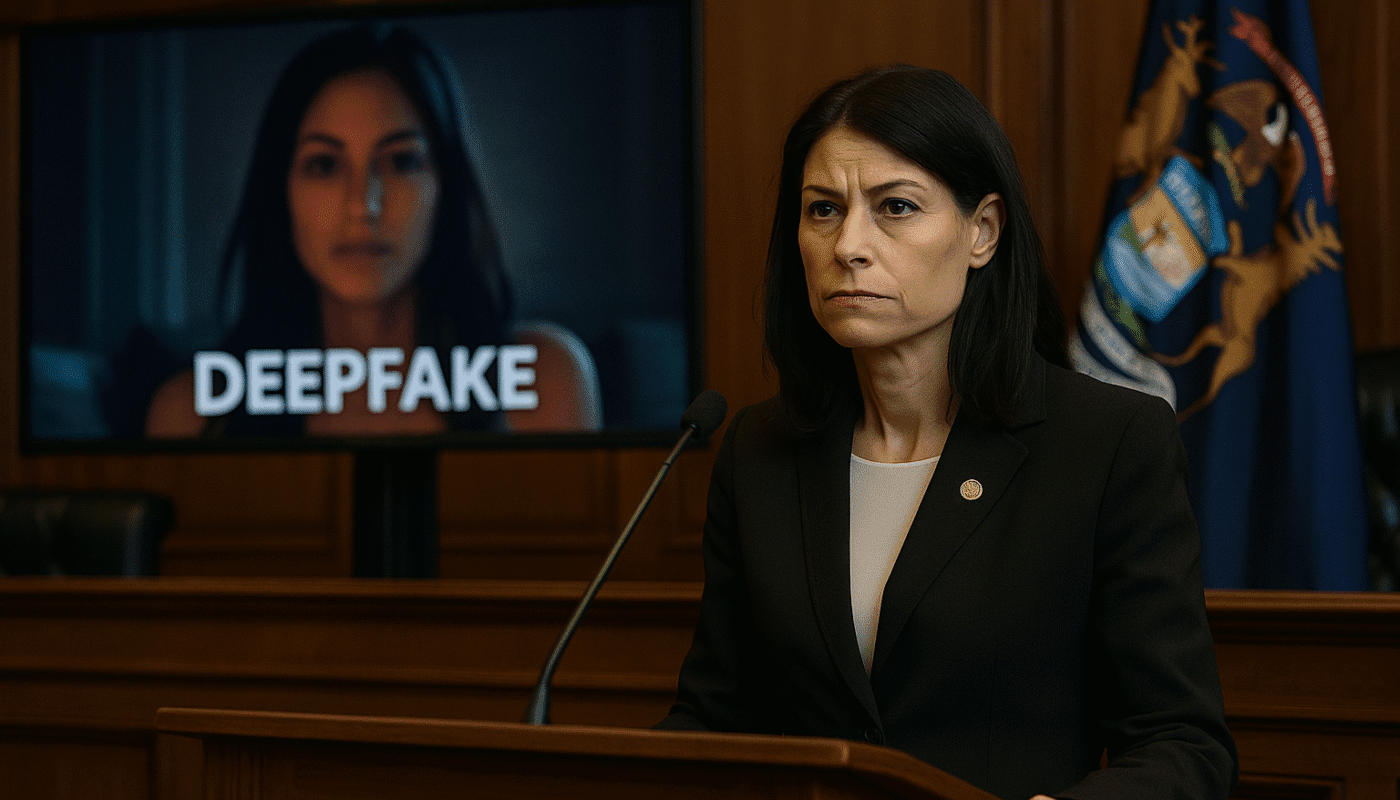Michigan joins national outcry against sweeping federal amendment stripping states of authority to regulate artificial intelligence technologies. The Feds could block a Michigan deepfake law, which targets explicit AI-generated content.
State Attorneys General Push Back on Federal AI Power Grab
LANSING — Michigan Attorney General Dana Nessel has joined a bipartisan coalition of 39 state and territory attorneys general in opposing a new federal amendment that would block states from regulating artificial intelligence (AI) for a decade. The controversial measure, attached to the federal budget reconciliation bill by the U.S. House Energy and Commerce Committee, proposes a 10-year moratorium on state-level AI oversight.
Nessel’s office, along with the coalition, sent a formal letter to congressional leaders on May 16, 2025, warning that the amendment would “strip states of the power to act” at a time when no comprehensive federal AI regulation exists.
Michigan’s Recent AI Legislation Targeted Deepfake Harms
The timing of this amendment is especially contentious in Michigan, where legislators recently advanced House Bills 4047 and 4048, titled the Protection from Intimate Deep Fakes Act. Passed overwhelmingly in the House in April, the bills would establish both civil and criminal penalties for the nonconsensual creation or sharing of sexually explicit deepfakes involving identifiable individuals.
If enacted, Michigan residents would be empowered to pursue legal action or press criminal charges if a deepfake causes emotional, reputational, or financial harm. The legislation also outlines enhanced penalties in cases involving intent to extort, harass, or profit from the content.
Michigan’s action is among the most robust attempts nationally to address emerging AI-related harms.
State AGs Argue Moratorium Is Overreach Without Replacement
The AG coalition’s letter argues that the amendment offers no substitute framework to replace state-level rules. It would, in effect, “wipe away any state-level frameworks already in place” and leave the public unprotected.
The letter explains that states have already passed a variety of narrowly focused laws designed to address harms from AI, including deepfakes, election misinformation, biased automated decision-making, and spam robocalls. These laws were often crafted with input from local stakeholders, consumers, and industry leaders.
The coalition contends that this sudden federal preemption “abdicates federal leadership” rather than promoting coordinated AI governance. “Consumers already turn to state Attorneys General offices to raise concerns and complaints,” the letter notes, adding that a blanket moratorium prevents these offices from acting on legitimate citizen concerns.
Why Michigan’s Leadership on AI Regulations Matters Now
Michigan’s move to criminalize intimate deepfakes has been a rare bipartisan success in Lansing. Sponsored by Rep. Matt Bierlein (R) and Rep. Penelope Tsernoglou (D), the legislation would create clear legal pathways for victims of AI-generated sexual content to sue creators or distributors and seek injunctive relief, including court-ordered takedowns.
If passed into law, violators could face up to three years in prison under certain circumstances. The law also includes provisions to allow plaintiffs to use pseudonyms and protect their identities during legal proceedings.
Attorney General Nessel, in her statement, emphasized, “Congress and the federal government should work with states, not against them, to ensure AI is developed and used responsibly.”
National Coalition Includes Red and Blue States Alike
The coalition includes AGs from across the political spectrum — from California and Massachusetts to Mississippi and Arkansas. This underscores the broad, bipartisan concern about preempting local control over fast-moving and often dangerous AI applications.
The AGs assert that any future federal legislation should focus on “high-risk” AI systems, include transparency and assessment requirements, and preserve state enforcement authority. The current amendment does none of that.
Implications for Michigan Deepfake Law On Residents and Businesses
For Michigan residents, particularly victims of digital exploitation, the moratorium would halt protections before they’re implemented. Businesses using AI systems would be left in a gray zone, unsure of compliance standards or enforcement risks at either the state or federal level.
The proposed moratorium, if enacted, could nullify years of legal and legislative groundwork aimed at addressing the real-world consequences of unregulated AI in Michigan and elsewhere.
Find More Interesting Feature Stories From ThumbWind
- Michigan Feature Stories – Unveiling the diverse and vibrant people, captivating places, and remarkable events that come together to make the Great Lake State unique and cherished by both residents and visitors alike.
- Weird Political News – A sarcastic take on official news from around the U.S., exploring the absurdities that often arise in the political landscape while providing a humorous perspective on current events and highlighting the quirks of politicians and policies.
- Michigan News – News and events from Michigan’s Upper Thumb region worth knowing, including local stories, impactful interviews, and updates on community happenings that shape the culture and lifestyle of the area.
Your Turn – Like This, or Loath it – We Want To Hear From You
Please offer an insightful and thoughtful comment. We review each response. Follow us to have other feature stories fill up your email box, or check us out at ThumbWind Publications .




